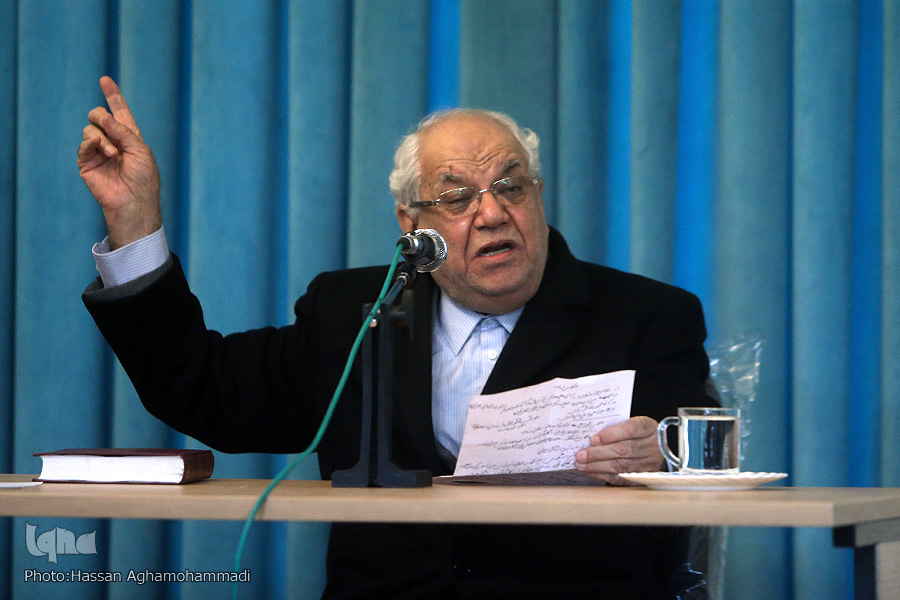Expert Talks of Status of Quran in Suhrawardi’s Philosophy

Born in 1154, Shahab al-Din Yahya ibn Habash Suhrawardi was one of the most prominent Iranian philosophers. He is also known as Shaikh al-ʿIshraq or "Master of Illumination".
A seminar called “Why Suhrawardi?” was held on March 11 in Tehran to discuss different aspects of Surawardi’s works.
Gholamreza Aavani, a retired professor of philisophy, was one of the speakers of the event who provided explanations about Illuminationist Philosophy (Hikmat al-'Ishraq) as one of the philosophical schools in the Muslim world. What follows is a summary of Aavani’s remarks in the session:
There are three or four philosophical schools in the Muslim world such as transcendent theosophy, Peripatetic school, and Illuminationist philosophy, although most schools in Greece can be traced back to Socrates.
To understand the importance of Suhrawardi, we should consider the era in which he lived. Living in the 12th century CE, he was concurrent with Averroes. Some 45 years earlier, Abu Hamid Al-Ghazali had refuted philosophy, introducing mysticism as the correct path. Averroes revived Aristotle’s thoughts and opposed Ibn Sina. So, the western world was an heir to Averroes and the dissemination of his thoughts led to the separation of religion from philosophy.
Therefore, Suhrawardi was the one who saved philosophy from the dominance of the thoughts of Al-Ghazali and Averroes. He revived the Hikmat (philosophy). Aristotle believed that philosophy belonged to Greece and even today, all philosophy books say the same. Meanwhile, Suhrawardi proposed a theory that is important in the history of philosophy. In the introduction to Hikmat al-Ishraq, he notes that anybody who is seeking the truth is enjoying divine illumination. He rejects Aristotle’s theory and asserts that science has not been endowed or given to just one tribe. He believes God is the most merciful and does not withhold knowledge from other nations.
Suhrawardi had a deeper view of philosophy. Followers of Aristotle were supporting a discursive philosophy but Suhrawardi believed that an intuitive philosophy has a higher value as it is gained through Zuhd. This philosophy, just like mysticism, talks about intuitive gnosis.
Suhrawardi's links with Quran
In Suhrawardi’s view, man will fail in achieving hikmat if he/she does not gain tazkiyat al-nafs or "purification of the self" in the process. Today’s popular thinking currents try to understand the world based on physical characteristics, however, Suhrawardi believes that physical characteristics are not enough to determine the nature of things. He describes how man is trapped in the world and how he can be saved through divine wisdom and knowledge. Philosophy, he believes, is the force that can save us and return us to our original homeland. As Prophet Muhammad (PBUH) said: Love of one's homeland is part of faith.
Another masterpiece of Suhrawardi is the combination of Quranic and discursive philosophies. He explains everything from philosophy’s point of view and then cites Quranic verses as evidence. He believes that Quranic and discursive philosophies do not oppose each other, rather, both are degrees of a single philosophy.



